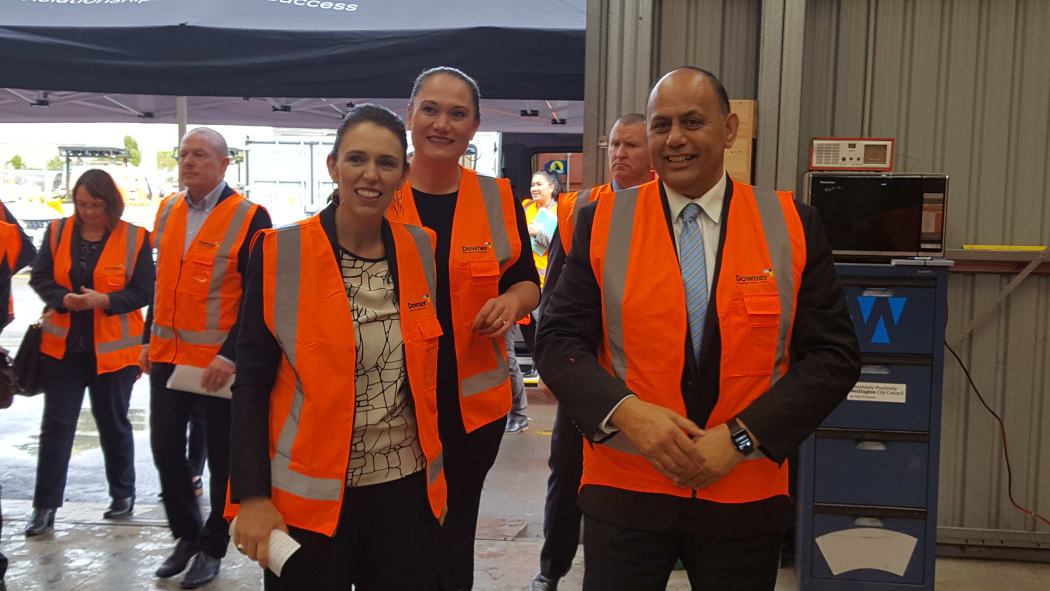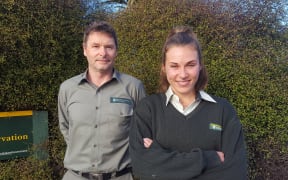Upto 4000 young beneficiaries will have the opportunity to learn and be paid on the job after a committment from the government to pay employers the equivalent of the dole to take on apprentices.

Prime Minister Jacinda Ardern with Social Development Minister Carmel Sepuloni and Employment Minister Willie Jackson. Photo: RNZ/ Jo Moir
The scheme, dubbed Mana in Mahi or Strength in Work, is for 18 to 24-year-olds who have been on a benefit for six months or more.
Employers will be encouraged to take on the apprentices for one year to work towards a level 4 qualification.
The income equivalent of the person's benefit will be paid to the employer and the employer will be expected to top that up to at least the minimum wage.
Employers will also be supported with extra funding for pastoral care at a cost between $3000 and $6000 giving the scheme a total price tag of between $12 million and $24 million depending on the uptake.
Mana in Mahi will start with a pilot for up to 150 people and more places will be made available from next year.
Employment Minister Willie Jackson said 4000 apprentices was aspirational and it would be important to make sure all the settings were right in the pilot so employers were incentivised to take part.
Prime Minister Jacinda Ardern announced the policy alongside Mr Jackson and Social Development Minister Carmel Sepuloni at Downer in Porirua.
Sub-contractors of Downer and Wellington Hospitality Group have both agreed to be part of the pilot from the start.
Ms Ardern said the programme would help young people get off welfare and encourage employers to take on apprentices they might not otherwise have trained.
"Its a win-win [situation]. [Young people] get off the benefit and enjoy the dignity of work while encouraging employers to take on apprentices they might otherwise not have trained,'' Ms Ardern said.
"We know these young people are dealing with many challenges in their daily lives that most of us dont have to deal with. Thats why were also investing in pastoral care to make sure they get the support they need to keep learning and earning, and to ease the pressure on employers."
Mr Jackson said the unemployment rate was relatively low at 4.5 per cent but there was still work to do for young people.
Eleven percent of 15-24 year olds are NEETS (Not in Employment, Education or Training) and while it was around 15 percent for Māori and Pacific people.
Mr Jackson said that was not good enough.







